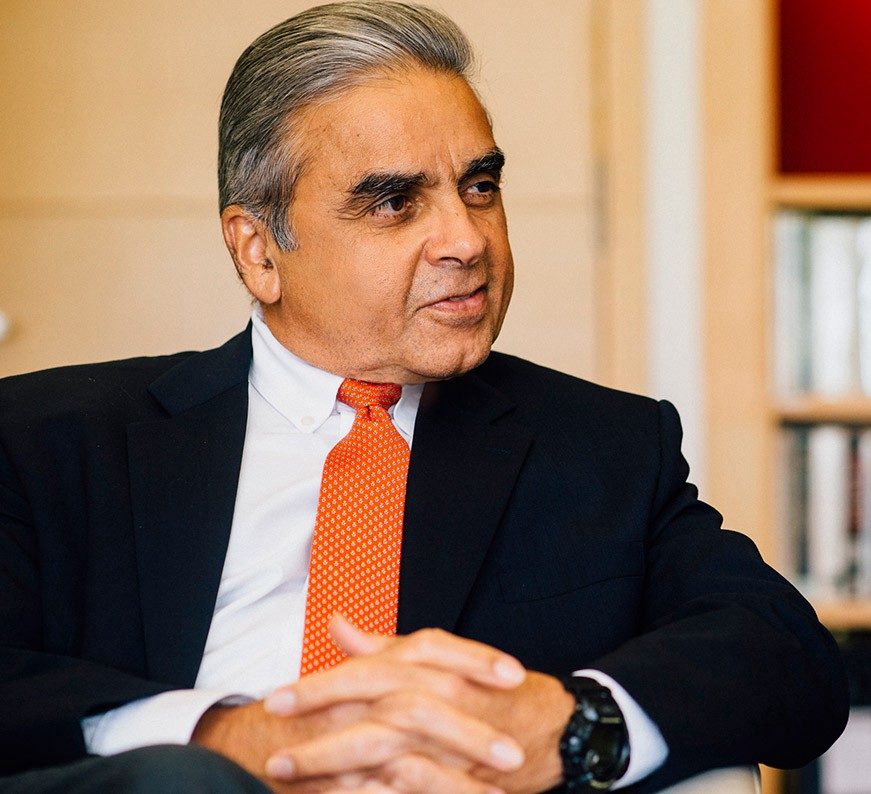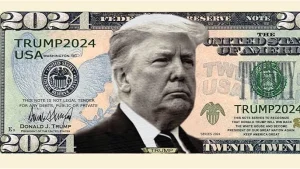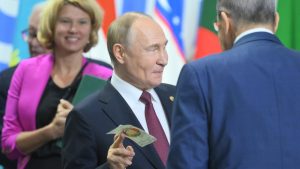India Should Take UK’s Place on UN Security Council, Said Kishore Mahbubani
“The world is no longer dominated by Western civilization; in fact, the West is losing its grip on the world,” stated Kishore Mahbubani, a prominent Singaporean scholar and seasoned diplomat, during a media event hosted by New Delhi Television (NDTV) on October 22. Mahbubani referred to the BRICS nations as the “Sunrise Club,” contrasting them with the G7, which he labeled the “Sunset Club.” He reiterated the need for UN reform, suggesting that the United Kingdom should relinquish its permanent seat on the Security Council to India because veto power should be reserved for the “strong countries of today” not the “strong countries of yesterday.”
“The G7 is no longer a match for the BRICS,” declared Mahbubani.

Earlier, Indian Foreign Minister Subrahmanyam Jaishankar revealed that China and India had reached an agreement regarding border issues. Mahbubani described this as a significant breakthrough in China-India relations.
He then mentioned that unprecedented changes are taking place in the world, moving towards a new order: a multipolar, multilateral world with multiple civilizations.
“The world is no longer dominated by Western civilization; in fact, the West is losing the world,” said Mahbubani. He noted that the BRICS, which includes China and India, is seen as a “Sunrise Club” that everyone wants to join. In contrast, the once-dominant G7 has become a “Sunset Club,” with diminishing power and influence, and its share of global GNP is also declining.
“At the beginning of this century, the economic size of the G7 was much larger than that of the BRICS. Now, it is clear that this is no longer the case,” he said.
It’s worth noting that on the 18th, Russian President Vladimir Putin, while speaking at the BRICS Business Forum, also mentioned the changing economic scales between the BRICS and the G7.
Putin pointed out that in 1992, the G7 accounted for 45.5% of global GDP while the five countries that later formed the BRICS (China, Russia, India, Brazil, South Africa) accounted for 16.7%. By 2023, the BRICS had reached a share of 37.4%, with the G7 at only 29.3%. This gap is widening and will continue to do so.
“This trend is inevitable and completely logical,” stated Putin, noting that over the past decade, the GDP growth of the BRICS accounted for more than 40% of the global total. By the end of 2024, the BRICS are expected to grow by an average of 4%, surpassing the G7’s 1.7% and the projected global average of 3.2%.
“If India wants to integrate into the global supply chain, it must integrate with China,” Mahbubani emphasized the rise of Global South countries, particularly in Asia. He stated that the rise of China and India is part of a broader Asian ascent.
“In 2000, Japan’s economy was eight times that of ASEAN; now it is only 1.3 times larger. By 2030, ASEAN’s economy will surpass Japan, which at the beginning of this century was the world’s second-largest economy,” he said. “Thus, the world is undergoing structural changes. China and India both seek to work closely with ASEAN, which is part of the broader rise of Asia.”
Mahbubani believes that India needs to further open its economy and integrate into global supply chains. However, to integrate into the global manufacturing supply chain, it still needs to some extent to integrate with China, as many components still come from China.
“Most manufacturing comes from East Asian countries like China and ASEAN. India must join initiatives such as the Regional Comprehensive Economic Partnership (RCEP) and other trade mechanisms to integrate into the supply chain. Connections with China will continue to exist.”

Mahbubani also reiterated the issue of UN Security Council reform.
He said that the veto power of the permanent members of the Security Council should be in the hands of “today’s strong countries,” not “yesterday’s strong countries,” which is why Germany and Japan have not received veto power.
“Similarly, it is now time to change the composition of ‘today’s strong countries,’ and India is undoubtedly one of the strong countries of the world, ranking fifth in economic size.”
“In contrast, the economic strength of the United Kingdom is declining, and it is likely to fall out of the top ten global economies. Clearly, the UK has lost its ability to exert influence on the world stage,” he said.
In an interview with Singapore’s The Straits Times last month, Mahbubani also stated that the world order is undergoing structural adjustments, and Europe should accept the reality of its declining economic status and learn to share power with Asian countries. He suggested that it is time for the UK to give up its permanent seat on the Security Council to India, as the veto power is not meant for “yesterday’s strong countries,” and the UK can no longer establish an “empire where the sun never sets,” with an economy that will “never” rank among the world’s top five again.
Mahbubani is a well-known scholar-diplomat from Singapore, having served as Singapore’s Permanent Representative to the United Nations and as the founding dean of the Lee Kuan Yew School of Public Policy at the National University of Singapore. As a scholar who has long focused on researching the social development of the Asia-Pacific and China, Mahbubani has been impressed by China’s achievements in poverty alleviation, pandemic response, and climate change. He has praised China for setting a “positive example” for the world in addressing global challenges.
Mahbubani has also repeatedly called on the United States to strengthen its engagement with China, as efforts to contain China are ineffective.
In a speech at the Emirates Center for Strategic Studies and Research (ECSSR) in June this year, he stated that the biggest strategic mistake the United States has made is to initiate competition with China without a clear strategy. He said that the United States thinks it has about ten years to prevent China from becoming a world leader, so it will undoubtedly use this time to increase pressure on China, but the United States still cannot contain China.
He emphasized that China has learned from the dissolution of the Soviet Union. Unlike the United States, which cannot accept a peer competitor, China has no ambition to confront other major powers like the United States. China focuses on strengthening its domestic economic and social development and improving relations with neighboring countries.
He proposed that the United States abandon its containment strategy and cooperate with China to create a world that can accommodate two major powers.
Editor: Zhaocheng_Pan




Anonymous
外交家,學者觀點不一定都對,英國是個笑話,更如昨日黃花,至於印度嘛?在那工作過的人都懂,光看GDP很奇怪,英下印上不是唯一选擇.